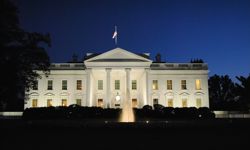The union has called for concerted action because the bill poses a significant threat to press freedom in England, Wales, Scotland and Northern Ireland.
Clause 68 of the bill is the only reference to journalists within the draft legislation and the current proposals limit the ability of all journalists to protect their sources and whistleblowers, says the NUJ.
Michelle Stanistreet, NUJ general secretary, said: "In the UK, journalists have been spied on, their phone records secretly pored over and their communications seized.
"The NUJ ethical code of conduct stipulates that a journalist must protect the identity of sources who supply information in confidence and material gathered in the course of her or his work.
"The bill is a threat to the ability of journalists to do their jobs, to guarantee their material and to protect their sources. Without that protection, we simply won't have a functioning free press.
"Source protection does not just apply to the identity of the source but also to communications between the journalist and the source. This includes the person's name; personal data, voice and image. It also includes the unpublished content of information and the circumstances of acquiring the information.
"A lack of safeguards for all journalists will have profound consequences for the public’s right to know in the UK."
The NUJ says its main concerns include:
1. The bill does not adhere to the standards or existing protections for journalism enshrined in legal precedent, the Police and Criminal Evidence Act (PACE) and the Terrorism Act.
2. The bill contains no requirement to notify a journalist, media company or their legal representatives when the state intends to access journalists communications or hack electronic equipment. The bill includes proposals to allow the state to intercept and examine both the content and meta-data of journalists' communications.
3. The bill does not contain the right to challenge or appeal a decision to access journalists’ communications, material and sources. If this law is introduced then journalists may never know if their communications or equipment have been accessed by the state.
4. There is no open, independent judicial authorisation enshrined in the bill. There will be judicial commissioners to oversee the arrangements and the commissioners will be appointed by the prime minister.
5. The government has ignored key recommendations set out by different parliamentary committees including the joint committee on the investigatory powers bill that stated: "The committee considers that protection for journalistic privilege should be fully addressed by way of substantive provisions on the face of the bill."












